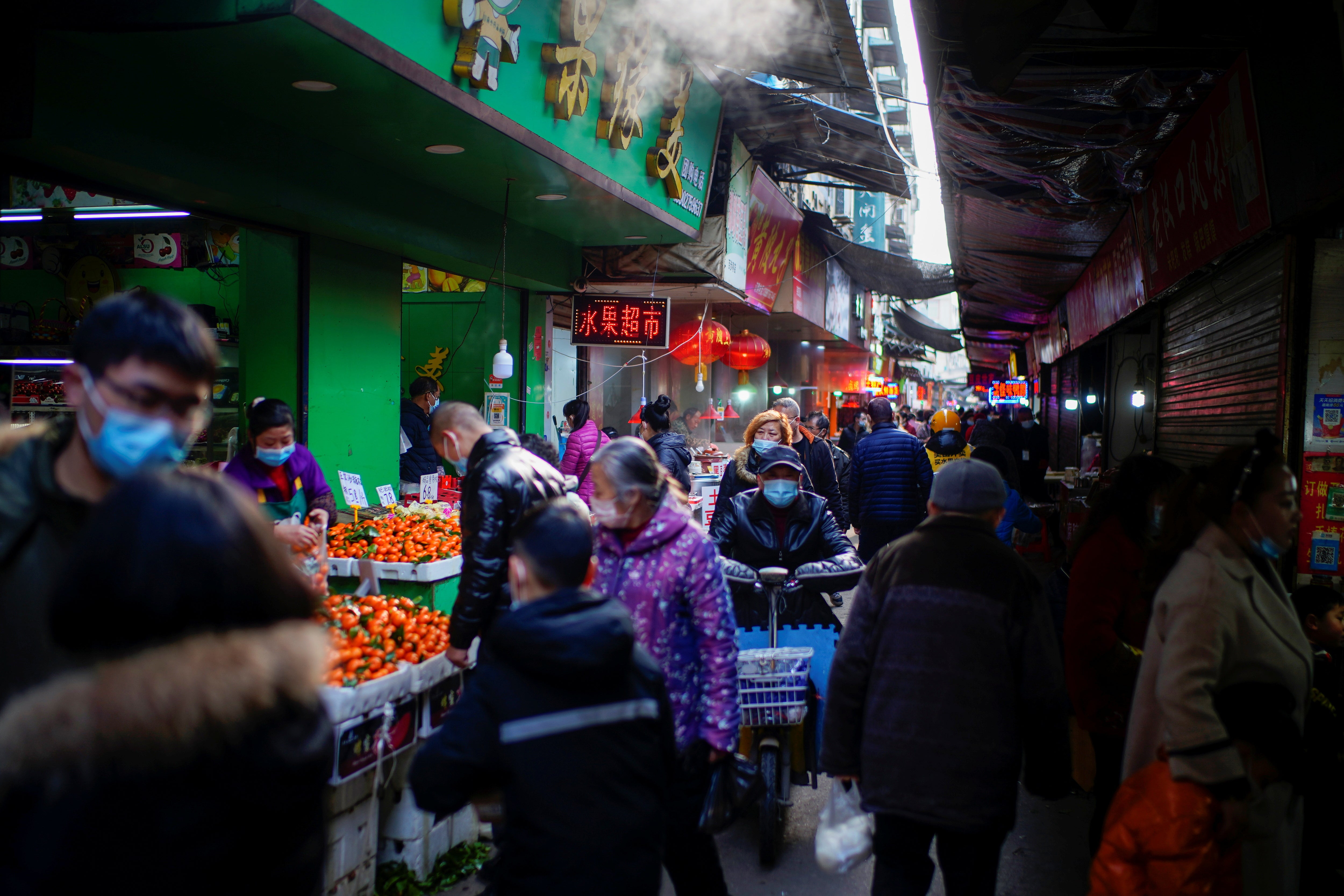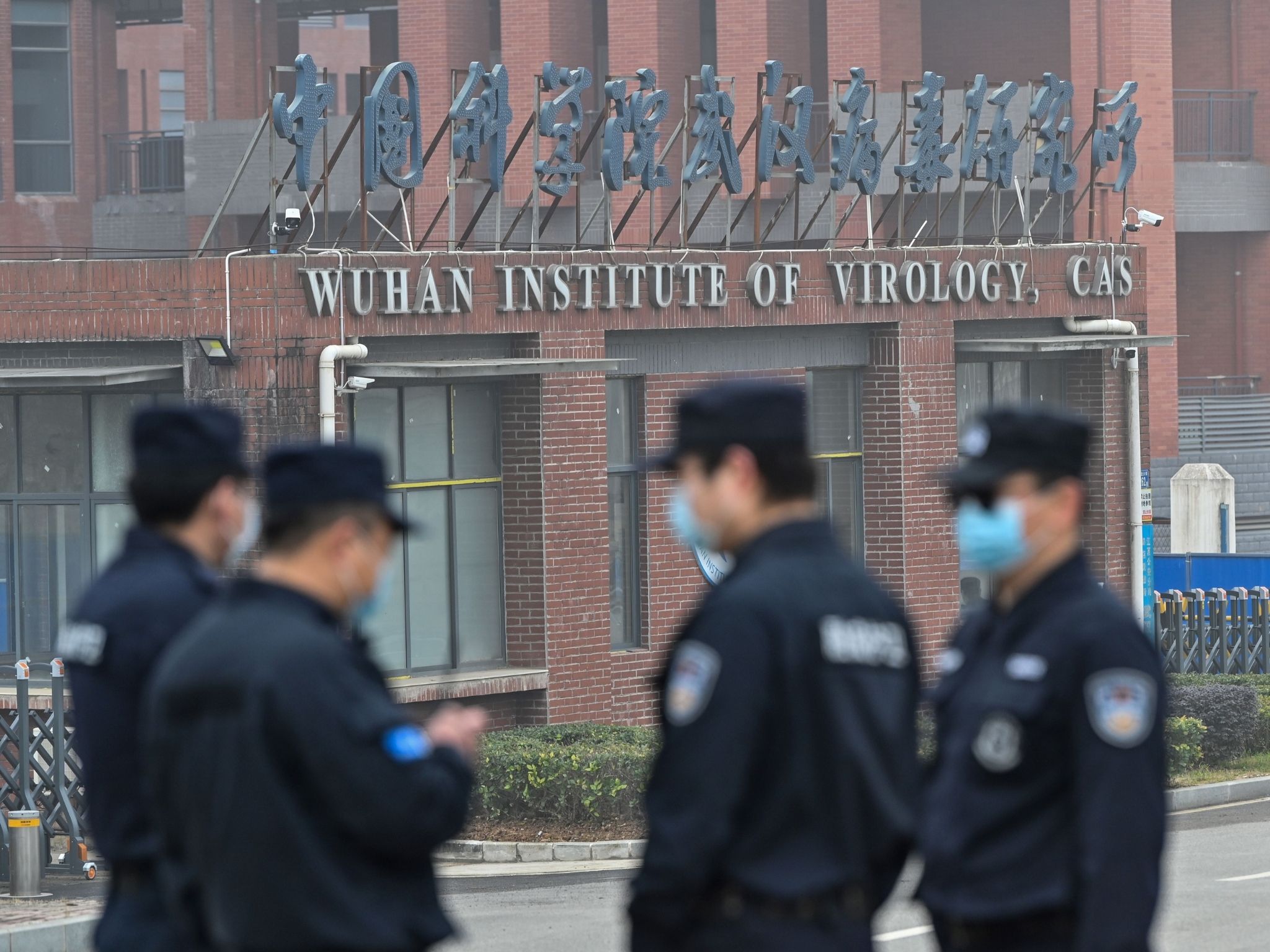WHO calls for ban on sale of live animals in food markets to combat pandemics
Governments told to reduce public health risks coming from live animal slaughter in markets

Your support helps us to tell the story
From reproductive rights to climate change to Big Tech, The Independent is on the ground when the story is developing. Whether it's investigating the financials of Elon Musk's pro-Trump PAC or producing our latest documentary, 'The A Word', which shines a light on the American women fighting for reproductive rights, we know how important it is to parse out the facts from the messaging.
At such a critical moment in US history, we need reporters on the ground. Your donation allows us to keep sending journalists to speak to both sides of the story.
The Independent is trusted by Americans across the entire political spectrum. And unlike many other quality news outlets, we choose not to lock Americans out of our reporting and analysis with paywalls. We believe quality journalism should be available to everyone, paid for by those who can afford it.
Your support makes all the difference.The World Health Organisation (WHO) has called for a complete ban on the sale of live animals in traditional food markets in a bid to stem future outbreaks of diseases like the coronavirus.
The WHO has urged all governments to suspend the trade in “live caught wild animals of mammalian species” slaughtered and sold next to other foods to reduce public health risks.
The organisation had previously called for conditions in live animal markets to be improved, but had warned shutting them down completely could interrupt food supplies.
It follows a joint study by WHO and health officials in China into the origins of Covid-19, which said so-called wet markets, which contain both live and dead animals, were a likely source of the outbreak.
Although the first human cases of the novel coronavirus were identified in the Chinese city of Wuhan, WHO officials have struggled to determine exactly how they got the infection.
The latest statement from the organisation makes clear officials believe live animal markets pose a big risk in creating novel viruses in future.
“Animals, particularly wild animals, are the source of more than 70 per cent of all emerging infectious diseases in humans, many of which are caused by novel viruses,” WHO said in a statement.
The United Nations’ health body added: “Wild mammals, in particular, pose a risk for the emergence of new diseases.”
China has faced claims that a laboratory-related incident at the Wuhan Institute of Virology could be the source of the Covid-19 virus.
But in February a team of experts from China and the WHO concluded it was “extremely unlikely” that the virus entered the human population from a lab.
However, a UK scientist on the team that visited Wuhan has said he refused to rule out a lab leak as the possible source of the outbreak.

Professor John Watson, a former deputy chief medical officer, said the possibility that the virus which causes Covid-19 was spread from a laboratory in Wuhan “remained on the table”.
He also said while China remained a “very, very possible source”, reports that the virus was circulating in other parts of the world, notably northern Italy, as early as September and October, warranted further investigation.
The WHO has previously said “the possibility that the virus may have silently circulated elsewhere cannot be ruled out”.
The US government has accused China of not being transparent enough in its investigation into the virus’s origins. On Sunday secretary of state Anthony Blinken called for a “more thorough” probe. “We need to get to the bottom of this.”
Join our commenting forum
Join thought-provoking conversations, follow other Independent readers and see their replies
Comments